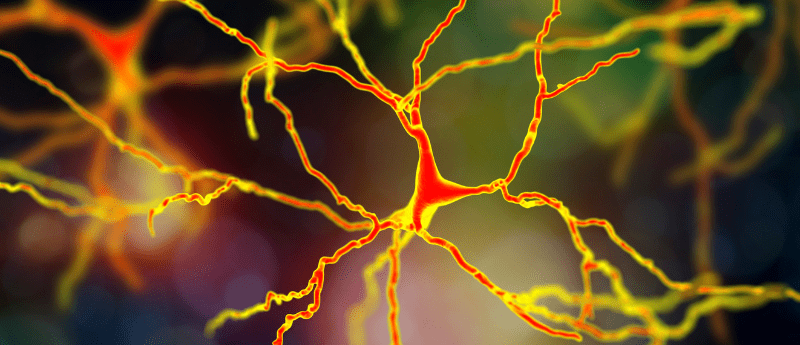Loss of PRC2 protein complex may be linked to Parkinson’s development

Inactivation of a protein complex may directly lead to reduced production of neurotransmitters by nerve cells, possibly providing insight into the disease mechanisms of Parkinson’s.
A hallmark of Parkinson’s is the progressive death of dopaminergic neurons, resulting in decreased amounts of the neurotransmitter dopamine. A collaborative study from Umeå University (Sweden), Lund University (Sweden) and Karolinska Institutet (Solna, Sweden) suggests how the death of these neurons may come about, reporting that inactivation of a specific protein complex reduces neurotransmitter production and results in Parkinson-like symptoms.
The differentiation of neuronal cell types during fetal development requires maintenance of a nerve-specific program of gene expression, as well as silencing of genes controlling properties not needed by nerve cells. The study outlines a role for the protein complex PRC2 in the silencing of unneeded genes.
Johan Holmberg (Umeå University) stated: “We have seen that if this protein complex is inactivated, the ability to keep genes that control other functions switched off is impaired. This, in turn, shuts down genes needed to maintain the function of nerve cells. In animal studies, we can see a change in the animals’ behavior that is similar to those that occur in Parkinson’s disease.”
 Impact of common viral infections on Alzheimer’s progression
Impact of common viral infections on Alzheimer’s progression
Researchers discover the relationship between herpes simplex virus reactivation and Alzheimer’s disease.
The group discovered that when PRC2’s function is impaired, neurons producing dopamine and serotonin lose their neuron-specific identity and function. Reduced levels of serotonin are highly associated with mental health issues, implicating a role for impaired PRC2 function in disorders beyond Parkinson’s. The research team mimicked an impaired PRC2 complex using nerve cell specific PRC2 knockout mice. This led to a progressive development of motor symptoms, similar to those seen in Parkinson’s disease.
The specific subtype of dopaminergic neuron that is lost during Parkinson’s disease was found to be particularly sensitive to PRC2 inactivation, as the gene expression changes seen were greater compared to other neuron subtypes. Future research will therefore focus on understanding why this neuron is particularly sensitive to PRC2 inactivation.
“If we can see that mechanisms controlling the regulation of genes are part of the reason why diseases that damage the nervous system occur, this could open up interesting new possibilities for diagnosis and treatment, but there is still a long way to go,” commented Holmberg.
The researchers plan to build upon these findings further, to establish whether these regulatory mechanisms seen in the mouse models are similarly seen in neurodegenerative or mental health disorders.
